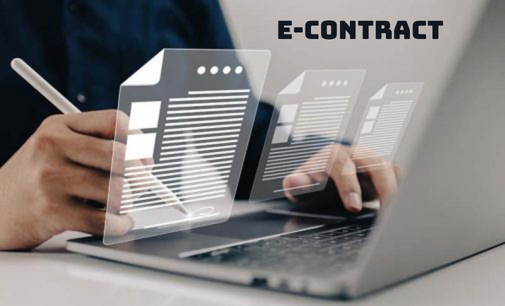Vietnam: What is an E-contract? What are the 03 differences between an electronic contract and a traditional contract?
What is an E-contract in Vietnam?
Pursuant to Article 33 of the Law on Electronic Transactions 2005, the concept of an e-contract is as follows:
E-contracts
E-contracts mean contracts established in the form of data messages provided for in this Law.
E-contracts mean contracts established in the form of data messages created, sent, received and stored throungh electronic means.
In which, an electronic means is a means that operates based on electric, electronic, digital, magnetic, wireless, optical, electro-magnetic technologies or similar technologies.
Entry into e-contracts means the use of data messages to execute part or whole of transactions in the process of entering into contracts. So, a notice in the form of a data message shall be legally valid like a notice in the traditional form.

What are the 03 differences between an electronic contract and a traditional contract in Vietnam?
* Legal base:
- Electronic contracts: Law on Electronic Transactions 2005, Civil Code 2005.
- Traditional contract: Civil Code 2015.
* Regarding the transaction method:
- Electronic contract:
Transactions through electronic means as written transactions.
+ Being used an electronic signature
- Traditional contract:
+ In writing
+ By words
+ By action
+ Other forms as agreed by both parties
* Regarding the contents of a contract:
- E-contract: Except for the contents of a traditional contract, the parties to an electronic contract can agree on:
+ Technical requirements
+ Authentication of electronic signatures
+ Conditions to ensure integrity and confidentiality
- Traditional contract:
+ The object of the contract
+ Quantity and quality;
+ Price, payment method;
+ Time limit, place and method of contract performance;
+ Rights and obligations of the parties;
+ Liability for breach of contract;
+ Dispute resolution method
Thus, between an electronic contract and a traditional contract, there will be fundamental differences in terms of the governing legal base, the transaction method and the content of performance.
The most obvious difference between an electronic contract and a traditional contract is that an electronic contract is transacted through electronic means and uses an electronic signature. This is completely different from traditional contracts when concluded in writing, words or actions.
What are the principles of entry into and execution of e-contracts in Vietnam?
Pursuant to the provisions of Article 35 of the Law on Electronic Transactions 2005, the principles for entry into and execution of e-contracts are as follows:
Principles of entry into and execution of e-contracts
1. Participating parties shall have the right to reach agreement on the use of electronic means in the entry into and execution of contracts.
2. The entry into and execution of an e-contract shall comply with the provisions of this Law and law on contracts.
3. When entering into and executing e-contracts, the parties shall have the right to reach agreement on technical requirements, certification, conditions to ensure integrity and confidentiality related to such e-contracts.
Thus, the entry into e-contracts shall follow an agreement on the use of electronic means in the entry into and execution of contracts of participating parties.
What is legal validity of e-signatures in Vietnam?
Pursuant to the provisions of Article 24 of the Law on Electronic Transactions 2005 as follows:
Legal validity of e-signatures
1. Where the law requires a document to be signed, such requirement with respect to a data message shall be considered having been met if an e-signature used for signing such data message satisfies the following conditions:
a) The method of creating the e-signature permits of identifying the signatory and indicating his/her approval of the contents of the data message;
b) Such method is sufficiently reliable and appropriate to the purpose for which the data message was originated and sent.
2. Where the law requires a document to be stamped with seal of the concerned agency or organization, such requirement with respect to a data message shall be considered having been met if the data message has an e-signature of the agency or organization that satisfies the conditions stipulated in Clause 1, Article 22 of this Law and the e-signature is certified.
3. The Government shall specify the management and use of e-signatures by agencies and organizations.
Thus, when an electronic signature meets the requirements of the method of creating the e-signature as prescribed, it is considered to have the same legal validity as a wet signature.
LawNet
